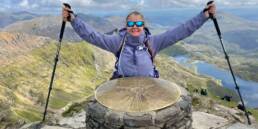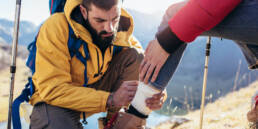Photo © Nicholas Selman
Wild camping is where you set up your tent outside of an official camp site. This is an increasingly popular activity with adventurers but it’s not without its problems. Wild camping is generally accepted and shouldn’t be confused with fly camping, a more recent phenomom when people setup camp close to the road, make lots of noise and often leave all their equipment and rubbish behind.
Technically, wild camping is not permitted anywhere in Snowdonia National Park or in fact in most England and Wales without prior permission from the landowner or farmer. All land is owned by someone and you should have their permission to wild camp on it. However it is widely accepted that wild camping is ok when following a few basic rules.
Trail Magazine, the UK’s best selling hillwalking and hiking magazine produce a handy wild camping code:
- Camp high on open hills away from main tracks, houses and farms
- Minimise numbers of people and tents
- Pitch your camp late in the evening and leave early in the morning
- Don’t dig drainage ditches, trample plants or move rocks
- If asked by a landowner to move on, do so respectfully and without argument
- Don’t light any fires; use a proper camping stove for cooking
- Toileting should be well away from any water source or path (30m or more)
- Paper and sanitary items should be bagged up and carried out, not buried
- Do not use streams or rivers for washing with soaps or detergent
- Maintain the peace by aiming to be as quiet as possible during your camp
- Don’t remain in the same spot for more than two nights maximum
- Bag up and carry out all litter, including food scraps
- Leave no trace that you’ve camped




